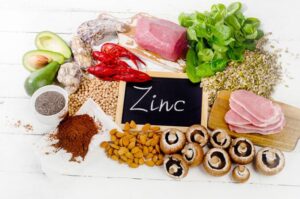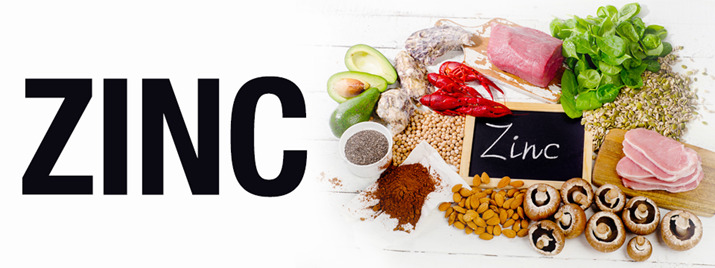Why is it important to consume Zinc rich-foods?
Zinc, a nutrient found throughout your body, helps your immune system and metabolism function. Zinc is also important to wound healing and your sense of taste and smell. With a varied diet, your body usually gets enough zinc. Food sources of zinc include chicken, red meat and fortified breakfast cereals.
Furthermore, after iron, zinc is the most abundant trace mineral in your body, which means it’s a mineral that we can’t do without but only need in small quantities to be healthy. Men and women 19 years and older need 11 milligrams and eight milligrams, respectively.
Zinc benefits:
- It occurs naturally in many of the foods you eat: The good news is that zinc is found throughout our food, from meat, fish and poultry to whole grains, nuts, legumes and vegetables.
- It helps you maintain a healthy immune system: Zinc can boost T-cell production, which is an important component of the immune system responsible for fighting off infections,” Harrison said. “Low levels of zinc are connected with reduced T-cell function, which explains why those who are zinc deficient are more prone to illness.
- It is an important nutrient for your skin: Zinc has anti-inflammatory properties that may help people with acne, rosacea, psoriasis, eczema and wound repair.
- It heals your gut: As long as you don’t overdo it with zinc supplementation, zinc is known as a soothing mineral for the digestive system. It helps repair the cells that line your intestinal tract, keeping them strong and tip-top shape so they can properly absorb nutrients.
- It may aid in age-related macular degeneration: Zinc is important to eye health as well. Zinc is naturally found in high levels of your macula, part of the retina, and helps vitamin A produce melanin, a pigment that protects your eyes.











